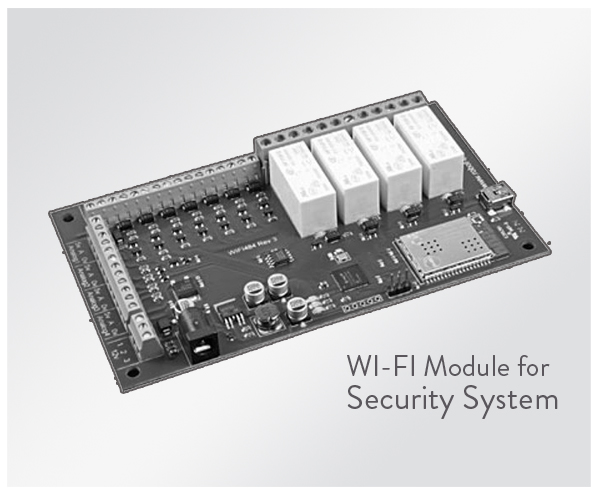7 Parameters to consider when buying WI-FI Module for CCTV Cameras
05-09-2016 | Security Systems, Security Cameras, Wireless Security, WiFi Module
Wi-Fi module is a key component in deploying a wireless security system. While choosing a Wi-Fi module for your equipment, you need to consider its both software and hardware aspects.
There are various kinds of WI-FI modules available in the market today and each WI-FI Module comes with its own combination of specifications. To make choosing the WI-FI module simpler, we have here the major parameters you should consider when buying a WI-FI module for IP Cameras.
Supported Protocol:
The benefits of any wireless network depends upon the protocols employed. Each security system network has its own set of protocols and each protocol comes with different specification requirement. The protocols or standards of the wifi module must be in sync with those of the security system’s network for it to work successfully. The important aspects to be considered for the same are data rate and power consumption etc and they generally depend on your applications. The latest modulation technologies and their coding rates are more efficient and capable of sustaining higher data rates, but the earlier tech and rates are still supported for backward compatibility.
Mamy Wi-Fi modules come with embedded Bluetooth for strong audio and data connectivity, enabling portable, battery powered devices at the same time.
Transmission Range:
Generally wifi networks have a limited range. This range hugely depends upon the number and kind of IP Cameras, routers along with wireless access points deployed on the network. For any security system it is essential that wifi module has the appropriate range for it to function properly.
Wi-Fi module in a 2.4 GHz frequency scale has slightly better range than Wi-Fi in the 5 GHz frequency scale which is used by 802.11a, 802.11n, and 802.11ac.
Operating Supply:
Just like any other electrical device, a wifi module’s performance also depends upon its operating supply or voltage. Higher transmit power output is necessary for the Wi-Fi module when higher data rate transmission distance is in play. Hence, it is important to find out the suitable current voltage of the wifi module based on the area covered by the security system.
Data Rate:
Theoretically, the maximum data rate for a Wi-Fi module could range from 1 Mbps (802.11 b) to 6.75Gb/s (802.11 ac). But contrary to popular belief, higher data rate is not always better, and you need to choose the possible solution for your requirements. For example, 802.11n and 802.11ac can be defined for higher data throughput applications. Data rate requirement of a wifi model thus greatly depends on the specification of cameras installed on the security system.
Microprocessor:
A Microprocessor can be defined as the brain of a device. For wifi modules they provide the optimum hardware platform according to which the wireless security system network is designed to combine high-performance processing and communications. While deciding upon the microprocessor the selection criteria are cost, its program size and data memory, power consumption, processing power etc.
Operating System or Driver Support:
Different wifi modules require their own operating system or supporting drivers in order for users to configure their PC systems, smartphones or tablets to the wireless security and network systems. It is important to take these supporting softwares into consideration when choosing a wifi module for the security system as they are sometimes the only obstacle for a user to access the wireless security system.
Shape and Size:
One of the main parameters that affects a wifi module selection is its size. The size of a wifi module must be based on the size of the security system. For a large and spread out security systems, a wifi module should be the size to support properly.





















Leave a comment